The title of a movie is part of its identity. It becomes a way of announcing to an audience the existence of a picture. Taking this into mind, it is clear that having a good title can offer many advantages. One is the benefit of advertising. A smart title that intrigues people and gets into their heads is one that can act as an incentive, persuading them to pay for the movie ticket. Another is the benefit of artistic merit. The contents of a film can be given a boost to with a title that people can appreciate as a standalone act. Lastly, it offers the benefit of providing the audience with a bit of information about the film that they wish to see, and thereby acts into the story itself. Other than all of this, titles are used to differentiate one movie from another, and in order to stay prominent, they must be memorable. Below is the list of best movie titles of all time, and a description for each that details the reasoning behind their placement on this list. Which among these do you think is the really cool movie title?
20. Dracula Has Risen From the Grave (1968)
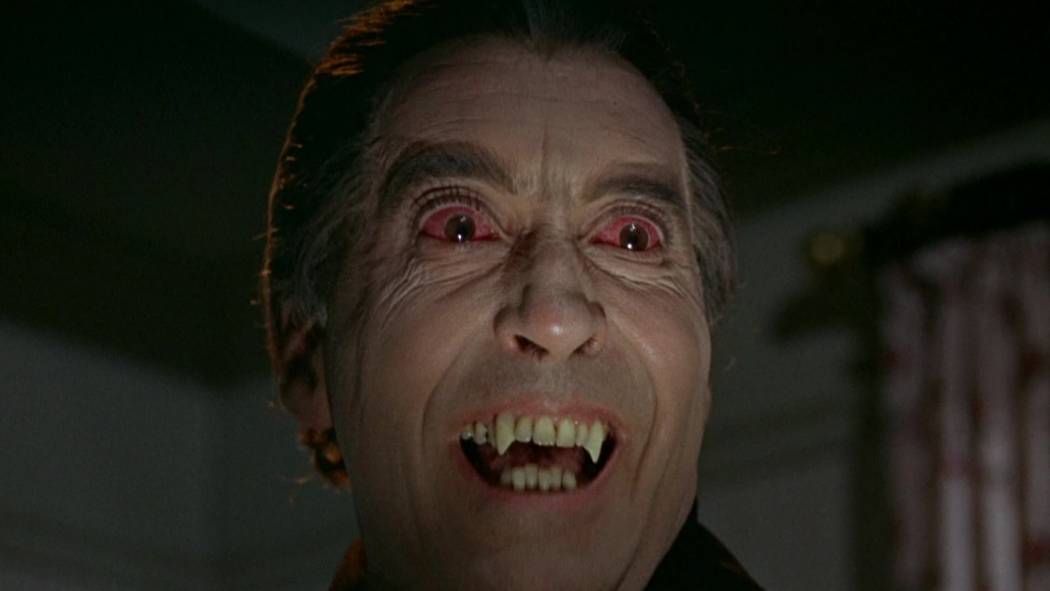
Part of the cult Dracula series released by Hammer Productions and starring Christopher Lee as the leading vampire, ‘Dracula Has Risen From the Grave’ sounds like the warning from a spooky, old fortune-teller who sits at the end of a pub and is otherwise silent. The feeling it gives off is quite unsettling as it is in the present tense. Dracula is no longer where he is supposed to be, and that makes one wonder, “where could he be now, and what does he mean to do?”. This is the genius of the title as it helps the film to advertise itself, claiming to be the answer to that question in all our minds. The chilling figure of a cold, blood-thirsty man resurrected from the dead is also one that is a little bit frightening. Adding to all of this the fact that the film was a sequel in a series of movies based on the character addresses the chilling idea that all is not well, yet again.
19. Dear Zachary: A Letter To A Son About His Father (2008)

The film bearing this title is the ‘letter’ being referred to, and that is somewhat clear (especially since this is a documentary). What isn’t are a couple of things. Who is Zachary’s father? Why is someone “writing” a letter based on the paternal figure? Why hasn’t he prepared it himself? What we can figure out is that there is a lot to say, and there is something about the father that his son needs to know. This 2008 documentary is very sad and unsettling, and it is the title that invites its audience first and foremost. The art of letter writing brings with it a sense of gentleness and grace, and the words “Dear Zachary” give us, the audience, an idea that it is written not with hate, but genuine love and care. Though after watching this disturbing film, you may wish to never have known the contents of this “letter”, the title is able to persuade us and let us know that this film holds something of importance within itself.
18. What Ever Happened To Baby Jane? (1962)
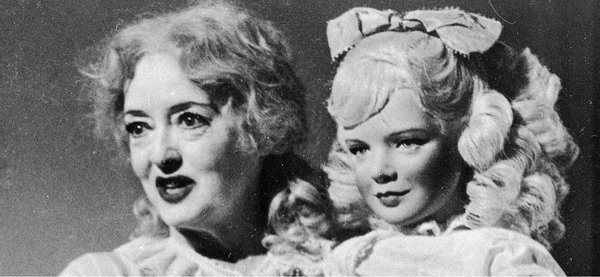
‘What Ever Happened To Baby Jane?’ is a title that poses a question, as if asked to the audience who plan to watch the picture, and that’s what strikes us first. The contents of the question follow. It portrays “Baby Jane” as a person who now lives in anonymity, and it plants in our minds that someone, or a group of people who once knew this figure (possibly when she was little, or to be more precise, a ‘baby’) do not have a clue about her whereabouts anymore. This is an example of the third benefit referred to within the introduction of this article, wherein a film’s title works itself into the story. Of course, the promise is that the movie will provide us with a satisfactory answer, but for now, we already have something of an idea about the film (as described above) but since it is all shrouded in mystery, we have no choice but to watch the film in order to satisfy our curiosity.
17. The Assassination Of Jesse James by the Coward Robert Ford (2007)
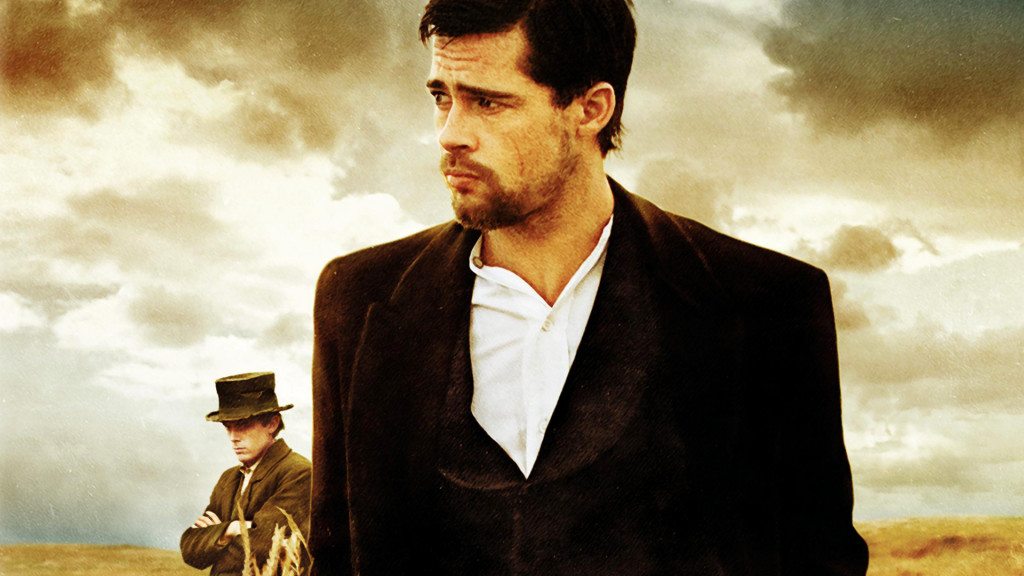
Right off the bat, the film holds its own opinion of the characters within it. There is a killing, and the murderer responsible is a man named Robert Ford. The victim is Jesse James, and the title gives him a respectable and elite status by referring to his killer as a coward. With just the title, character dynamics have already been created. The construction of the sentence gives the audience the idea that the film plans to display the titular assassination, and hopefully the steps leading up to it, the aftermath, or a combination of the two. We subconsciously root for Jesse James, as it has been built into us as human beings the characteristic of supporting the weaker party (despite Ford being the one who is afraid), and we look negatively at his killer. The surety and straightforwardness of the title makes it look as though this film is the one and only place where we can find out exactly what we want about the event.
16. The Texas Chainsaw Massacre (1974)

Not only do we get the notion that the film holding this title is of the horror genre, we also feel a little unnerved by it. The murder weapon and location are very clear to us, and it is also said that a lot of people were killed (from the word ‘massacre’). What we lack the knowledge of are the identity of the perpetrator, his/her victims, and the motive behind his/her spree killing. This title has a sort of encyclopedic feel to it, and therefore the event described feels like it could have actually happened, and the film is made to look like an honest depiction of the cruel incident. Imagining a venomous person taking people down with their chainsaw is quite a bloody picture, and it instills in our minds an expectation of gore when we walk into the theater. This title seems to both advertise the film as well as give the audience an idea of what it is that they can expect.
15. Eyes Wide Shut (1999)
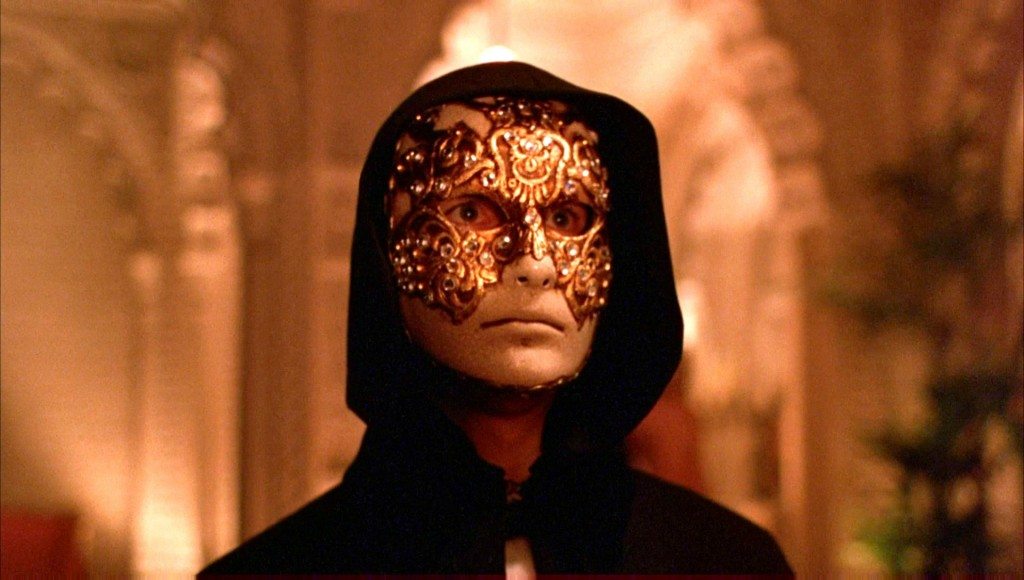
‘Eyes Wide Shut’ is a title that really hits you. It’s like the punchline of a joke, that you don’t expect to come but does, and it’s the best part of the whole thing. The first two words make it pretty obvious that the following is ‘open’, yet it isn’t. In fact, it’s the exact opposite. Having seen the film, this makes perfect sense because one of its major themes is hiding away from your problems and finding solace and comfort though you know very well that everything surrounding you is dipped in darkness. Stanley Kubrick, the director of this film, suggested that it be titled this way, and from his meticulous directorial background, I am quite certain that he did so with something fairly cerebral in mind. When one comes across unreal events shrouded in mystery, uncertainty, and fear, is closing your eyes and waiting for everything to (hopefully) blow over the smart thing to do?
14. Symbiopsychotaxiplasm: Take One (1968)
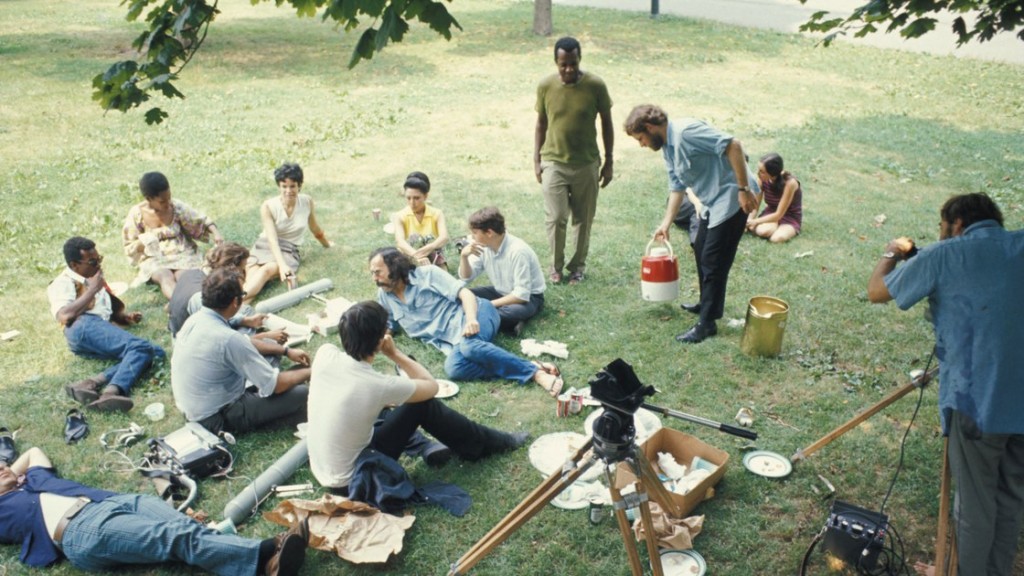
Much like Josh Radnor’s comparatively recent feature ‘Happythankyoumoreplease’ (2010), someone who comes by a title of this nature may naturally think of it as a combination of several words, and the breaks offered by the syllables only further this notion. The film that comes along with this complicated mixture of a word is a documentary that dared to capture human life at its most realistic state. Steered by a man named William Greaves, the film works today as a time capsule that serves to show how people behaved in actuality back in the ’60s without the knowledge of cameras being present in their surroundings. The title of this movie is based on a scientific concept called ‘symbiotaxiplasm’ which is used to describe the events that affect the conscious mind of human beings and how they act upon it, and this has been conjoined with the root ‘psycho’ in order to give the original meaning a more chaotic one.
13. There Will Be Blood (2007)
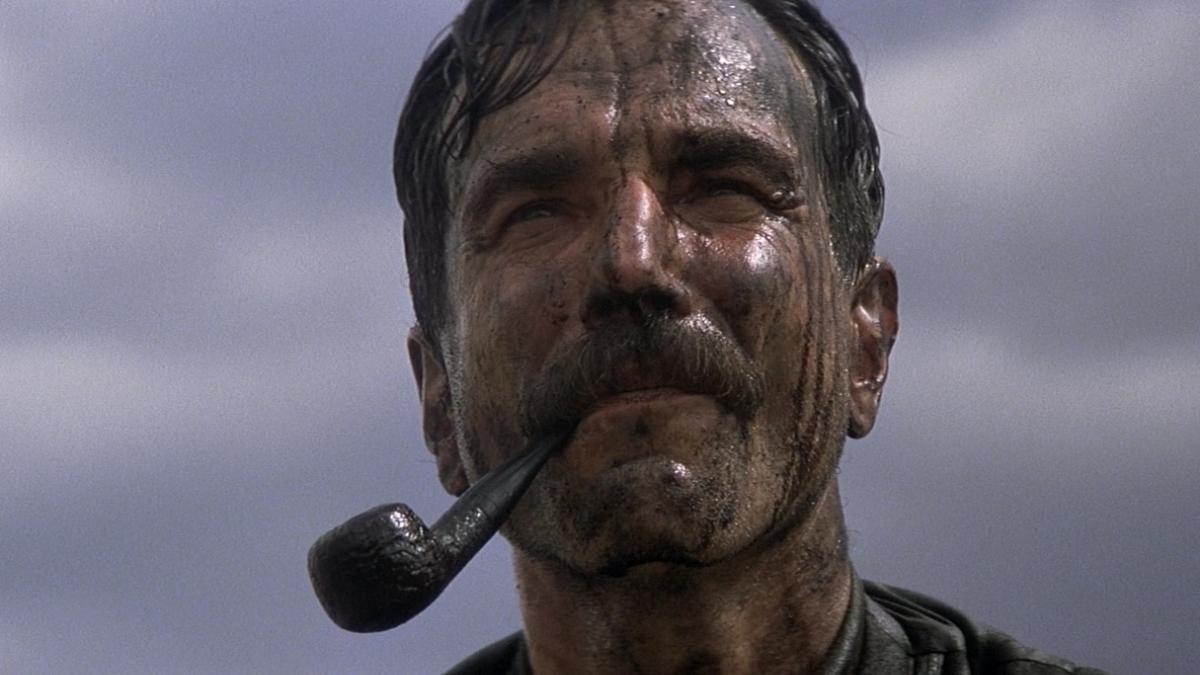
It’s as simple as a title can get. ‘There Will Be Blood’ is a literal phrase of caution to the audience of this picture, and parents need not go over to check the rating provided by the MPAA. The human mind is built in order to wander around, and we may interpret this in several ways. Is it a message to us, or is it a deadly phrase uttered before a fight by the leading man of a clan within the picture? There’s something intriguing about this title and the way it plays upon our psyche is quite interesting a topic to explore. It is set in the future tense, and so it describes an event that hasn’t taken place yet. Blood will be shed, when a certain thing happens. It fuels our curiosity, and since we don’t think of it as a death threat of some sort (towards us), we also find it quite inviting. Therefore, ‘There Will Be Blood’ gives us something of an idea about the film we’re about to see, and it helps advertise the picture as well.
12. Raging Bull (1980)
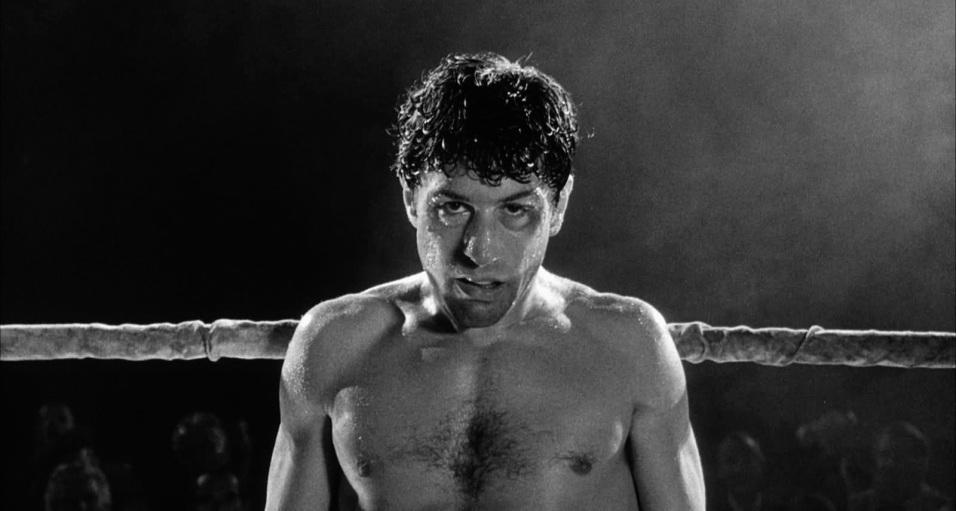
Oh my, what an image this title brings to our heads! I picture a big, muscular, black bull that has absolutely no care or concern for anybody or anything, and it breathes heavily out of its large, ominous nostrils. All it wants to do is fight (or hit something at the least), as it is in a fit of fury. When printed along with the poster of the film, the viewer gets a clear idea about what they are going to see in the theater. Just like the aforementioned bull, the film is about a boxer who has lost his cool, and is placed within the fighting arena, ready for a match (as seen in the poster). After watching the picture we realize it is more about the complexity of the troubled soul and is executed in a manner that is much darker than the title or the poster could even strive to be, but this still is a genius way of advertising a disturbing and morose piece about… well, each one of us, as we all have that moment where we just can’t take it anymore.
11. In the Realm of the Senses (1976)

I love how wonderfully this title describes lovemaking. The controversial 1976 picture was banned in many countries because of its excessive nudity and unsimulated sexual content. It is good, but it doesn’t even come close to the promise held by its beautiful title. Our senses take control of us, as we are subject to them in their kingdom, and they are elevated to such heights when sex is involved. I hate having to give a straitjacket meaning to something of such artistry, and so I’ll leave the rest of the interpreting to you. The title caught on and, along with the assurance of the content that it had, made the film successful. The French title translates to ‘Empire of the Senses’, and while the two basically mean the same thing, I feel as though there is a special something about the word ‘realm’ that can grasp our emotions on an even better level.
10. One Flew Over the Cuckoo’s Nest (1975)
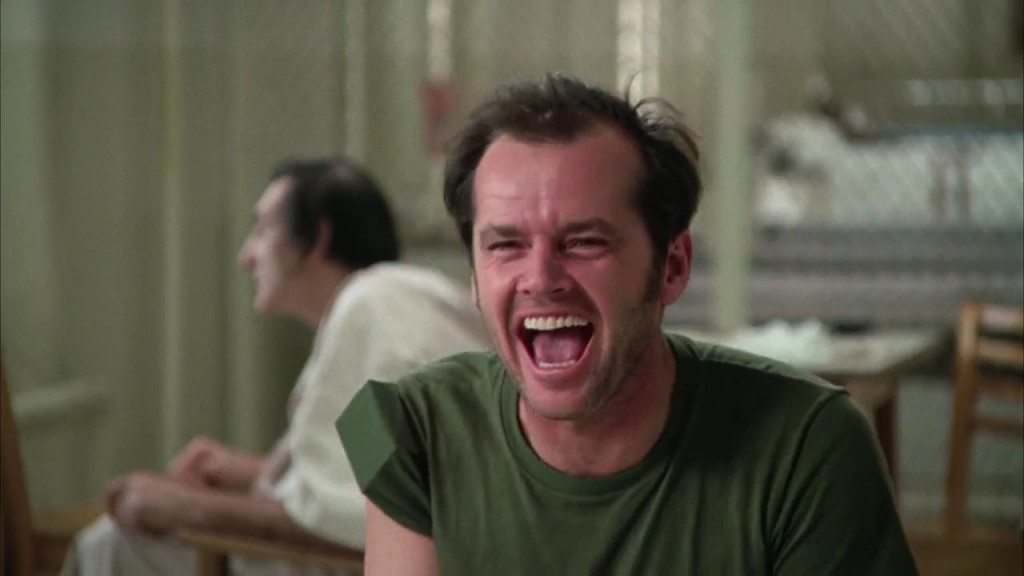
The title of this 1975 Oscar winner speaks in reference to a children’s rhyme, part of which goes:
“One flew east, one flew west.
One flew over the cuckoo’s nest.”
This phrase is used to describe someone who has gone insane. The name of this specific bird specie has been used since the days of yore to ridicule and make fun of people by labeling them as mentally ill, usually as a joke and used more prominently amongst children. The protagonist of our story, a seemingly sane man named McMurphy is the one who “flew over”, according to most interpretations of the title. The ‘cuckoo’s nest’, hence, becomes the mental ward that he enters. This title, like some other mentions of the list, doesn’t act into the story but is poetic in its expression, due to which I find that it can be interpreted in different ways. The title was able to advertise the film, but that was mainly because it was an adaptation of a novel which bared the same name.
9. Synecdoche, New York (2008)
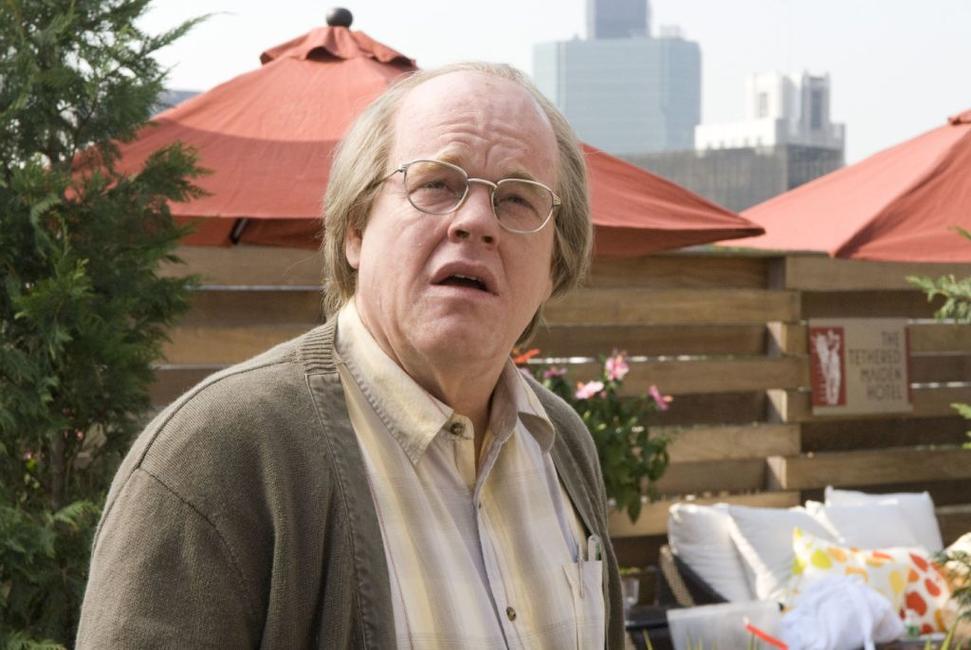
Charlie Kaufman‘s directorial debut has a title that doesn’t provide us with much information about what we are about to see. There’s a little hint that the film’s events take place within New York. The word ‘synecdoche’, a poetic device that uses a part to describe a whole gives us little to lead on with. Only after you watch the film does the title make some sense. For starters, it is a play on Schenectady, a place within New York, and coincidentally the location where the film was shot. It follows a man who creates a play that is based on his entire life, and in this way forms a synecdoche with his actions (as his life story is told with just a play). Later in the film, the play slowly starts to affect him in such a way that it takes control of his life, which can be considered as a sort of reverse-synecdoche, in relation to the previous connotation. Rather than advertising or providing the audience with a glimpse into what they’re about to witness, ‘Synecdoche, New York’ wins a place on this list due to its artistic excellence.
8. A Pigeon Sat On A Branch Reflecting On Existence (2014)
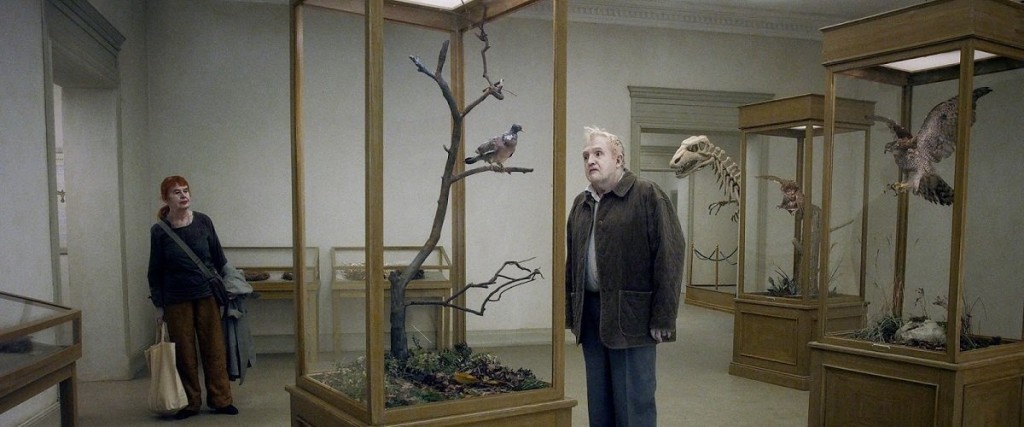
The flow of this title is one of the things about it that interests me. Everyday, every hour, every minute, events happen in this world that we don’t pay much attention to because they are mundane. The sun rising, the day slowly turning darker, and going along with this particular phrase, pigeons sitting on branches. It takes an extraordinary mind to actually figure out what those birds are doing, besides sitting there, all silent and wide-eyed. Are they thinking about something? Are they remembering a beautiful night now passed over? What if they are recalling a failed romance of theirs with a fellow pigeon, and solemnly sulking in silence? We can’t tell, but the poet in us can imagine, and Swedish director Roy Andersson believes that they are reflecting upon their very existence. He further adds that the title is merely a “different way of saying ‘what are we actually doing’, that’s what the movie is about.” I find it to be a beautiful observation of our surroundings.
Read More: Most Confusing Movies of All Time
7. Jeanne Dielman, 23 Commerce Quay, 1080 Brussels (1975)
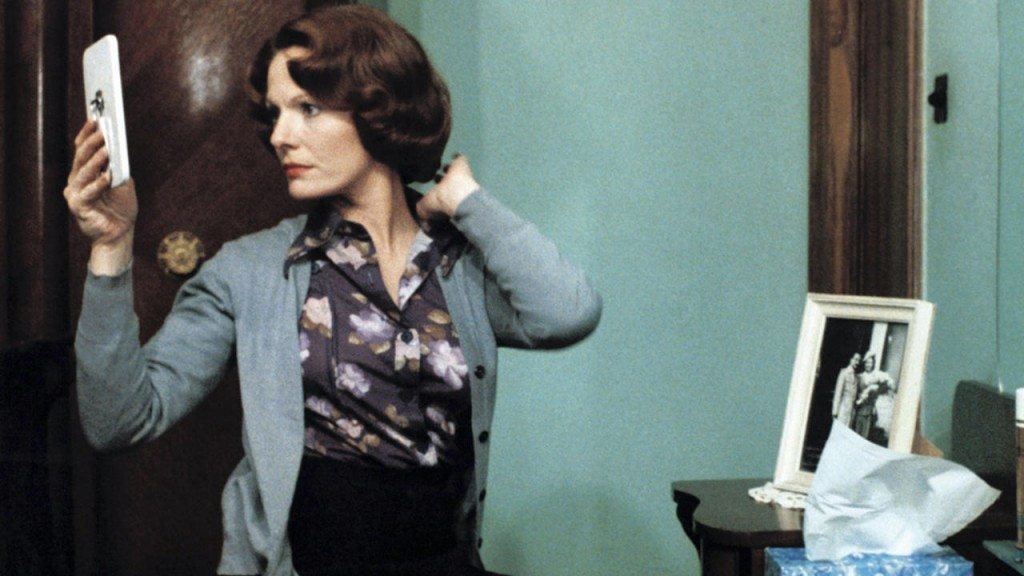
‘Jeanne Dielman, 23 Commerce Quay, 1080 Brussels’ is an address that if followed, takes you to the residence of a lonely widow named Jeanne Dielman, who is a sex worker but keeps aside most of her time for house work and daily chores. A person’s address is the blandest, most inexpressive way to describe them. There are no emotions felt, and there are no character traits communicated. Part of what ‘Jeanne Dielman’ focuses on as a movie is the repetitive and routine nature of life as led by a homemaker and mother of one. The style of the film coincides rather well with its title, because even this is straightforward, lacking action, and in a lot of ways seemingly boring and eventless. The title works into the story and stands out because of its own qualities, independent of that of the film, which is an underrated work of art.
Read More: Best Neo-Noir Movies of All Time
6. Scream (1996)

From the title alone, it’s easy to guess the genre that the film attributes itself to. Screaming signifies the presence of something horrific in our midst, and it generally is an unpleasant thing to do. I love the simplicity of single-word titles (of which you will see a couple more examples as we go further along) that intrigue its audience, thereby advertising the film and working into the movie as we now know more about its nature, themes, and the fact that there is a victim and a perpetrator. The benefit of having a small title is that it stays embedded in the minds of its audience. That could be part of the reason (along with the fact that it quickly catches our attention) why this film went on to win its place in popular culture as the quintessential midnight movie, because its easier to recommend ‘Scream’ on a short notice than it is to recommend, say, ‘An American Werewolf In London’, another great horror film with an interesting title.
Read More: Best Inspirational Movies of All Time
5. Eternal Sunshine of the Spotless Mind (2004)

The second film on this list to do with screenwriter Charlie Kaufman, the only thing about ‘Eternal Sunshine of the Spotless Mind’ that caught my eye prior to viewing it was its title. The way it represents the story as a whole is quite beautiful. The title is a phrase that signifies a lie. A ‘spotless mind’ is one without troubling thoughts, emotions, and feelings of pain and distress, and a mind of this type is said to bring forth an ‘eternal sunshine’ or everlasting peace into the life of a person who has one. The film is a journey into a man’s head as he removes painful memories from it, only to then realize how beautiful they were. Therefore, the title is a statement that is disproven by the film and its story. A spotless mind has no worries, no motivations, and no reasons to continue on forward, and all an eternal sunshine is is happiness that we can achieve by actually doing something worthwhile with our lives.
Read More: Best Visually Stunning Movies of All Time
4. Begotten (1990)
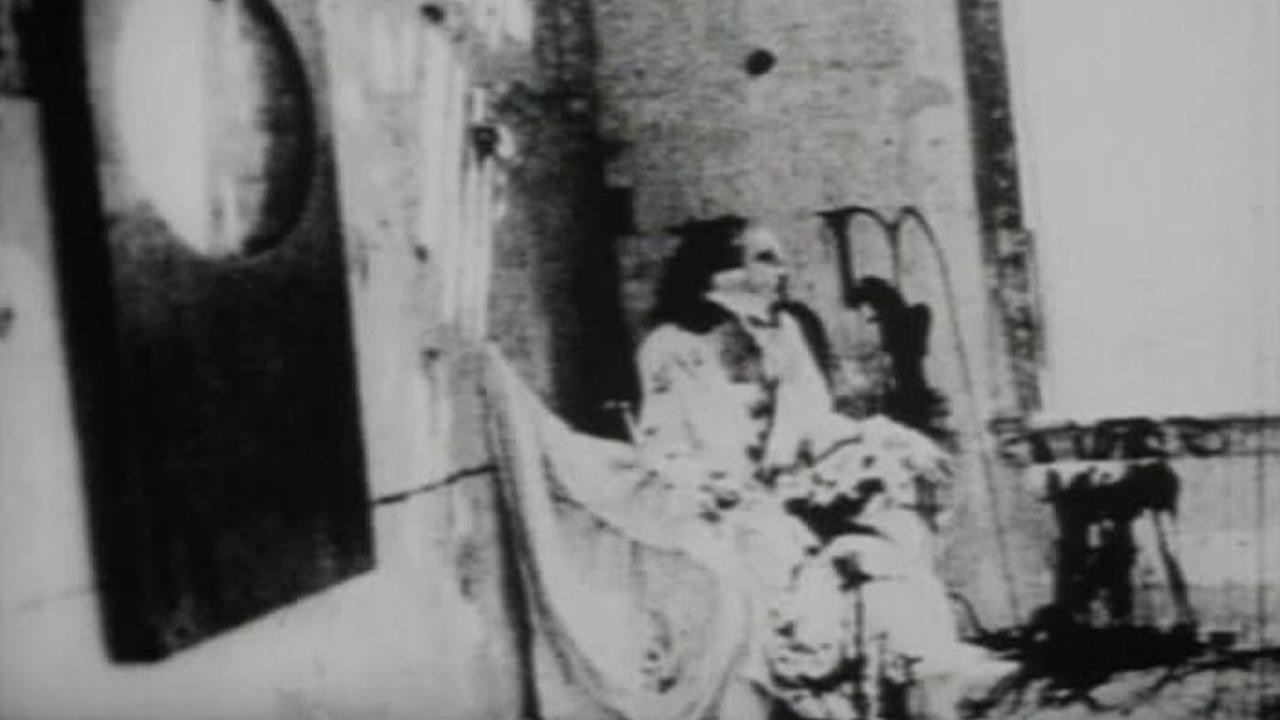
‘Begotten’ is a word that is rarely used in the conversations of today, and so it comes with a sense of unfamiliarity. The hard ‘g’ and emphasis on the ‘t’ sound make the term quite menacing. It is the past tense of the word ‘beget’, which refers to the process of bringing something into existence as a result of reproduction or multiplication. There is nothing else that gives us a clue about the nature of the film. ‘Begotten’ is a scary word, and it sounds as though the product of the process is an object or a being that not many are keen on owning or loving. It promotes the picture as a terrifying piece, and the literal meaning of the term has a lot to do with the basic theme of the film, which is a surreal artwork that can send chills down one’s spine. The fact that the title is just one word makes it linger in your head, haunting you all by itself.
Read More: Most Overrated Movies of All Time
3. The Cook, the Thief, His Wife, and Her Lover (1989)
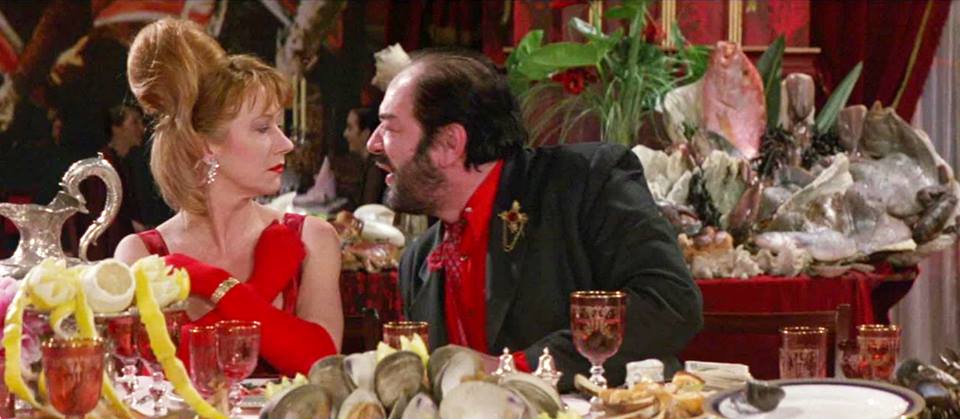
Notice a pattern here? This is another title on the list that flows along like a clear stream, and the way it establishes characters, their relation to each other, and in a couple cases their occupations and even story dynamics is just mind-blowingly clever. For one, we now know that there is a cook or a chef in the tale, and that the second character being referred to has some relation to the first (and possibly one that isn’t very healthy, given that he is named ‘the thief’). The ‘wife’, of course, is in reference to the significant other of the crook, and she happens to be cheating on him with her lover. It’s pretty interesting to point out that though we know a lot, the film still hasn’t been spoiled for us. The title is a blurb, and it confuses relating to the involvement of crime and comedy with possibly a hint of romance. It seems as though there is something in it for everybody, and that in itself is a weirdly effective form of advertising.
Read More: Biggest Box Office Flops of All Time
2. Psycho (1960)
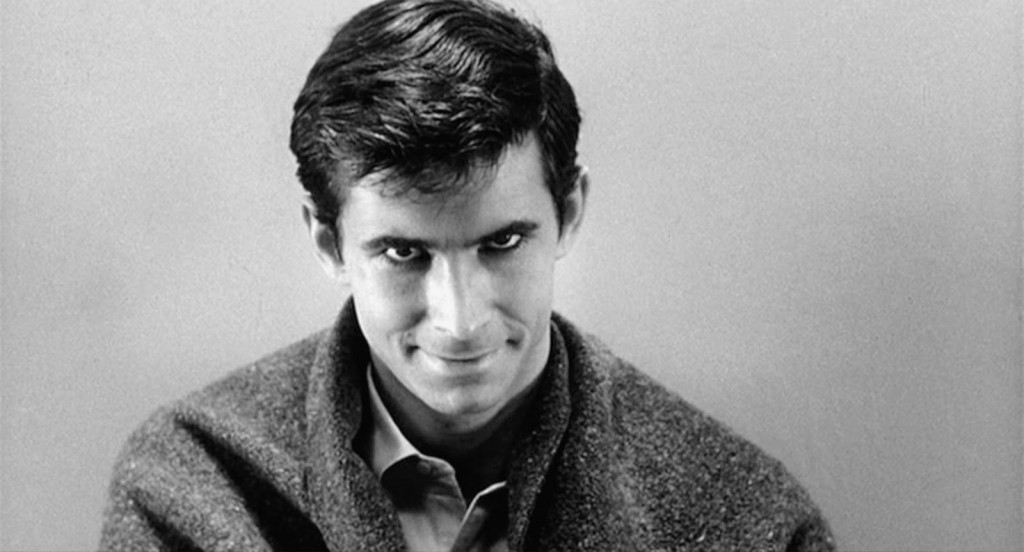
Along with ‘Psycho’, many of director Alfred Hitchcock‘s films like ‘Suspicion’ (1941), ‘Topaz’ (1969), ‘Frenzy’ (1972), ‘Rebecca’ (1940), ‘Spellbound’ (1945), and ‘Vertigo’ (1958) have single-word titles. One thing to know about Hitchcock as a filmmaker is that he knew how to sell his pictures to a wide audience. There’s a reason why ‘Psycho’ is still as popular, if not more today than it was back in 1960, and that’s partly due to its title. It brings to mind similar words, like ‘crazy’, ‘chaotic’, ‘dangerous’, ‘lunatic’, and of course, ‘murderer’. Following its release, the word has been unanimously associated with this picture and this picture alone. Hitchcock once claimed to enjoy such brevity in his titles because of the dramatic effect it had on his viewers. There’s no denying it, ‘Psycho’ is a killer title, and it was able to promote the film well, giving its audience a clue about what they were about to see while standing out with its own creepily alluring charm.
Read More: Highest Grossing Movies of All Time
1. Jaws (1975)

There simply exists nothing quite like ‘Jaws’. It describes teeth. Scary, sharp, frightening teeth. The message is quickly conveyed to the audience: there is something within this picture that needs to be looked at with caution. Along with the poster, we understand that this ‘something’ is a shark. Like the previous pick, ‘Jaws’ is just one word, but the way it defines its content is fascinating. Maybe it’s the thing Hitchcock said about “dramatic effect” again, but I find it to be more artistically rich. Take a look at the letter ‘W’ is ‘Jaws’ (or ‘JAWS’ as it appears within the trailer, poster, and movie). It gives the image of two sharp teeth, and paints a picture of the word it is a part of, and that’s something only few titles have been able to carry forth thus far. It’s no surprise as to why ‘Jaws’ remains a classic and was a summer blockbuster at the time of its release. Being one of the most memorable film titles to ever brush the silver screen, its financial success and status were only natural.
Read More: Most Expensive Movies Ever Made

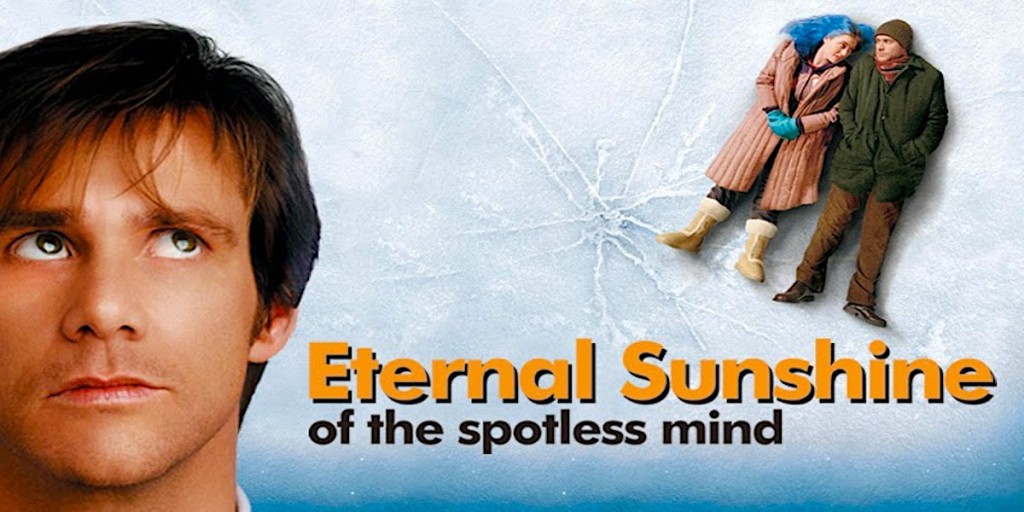
You must be logged in to post a comment.